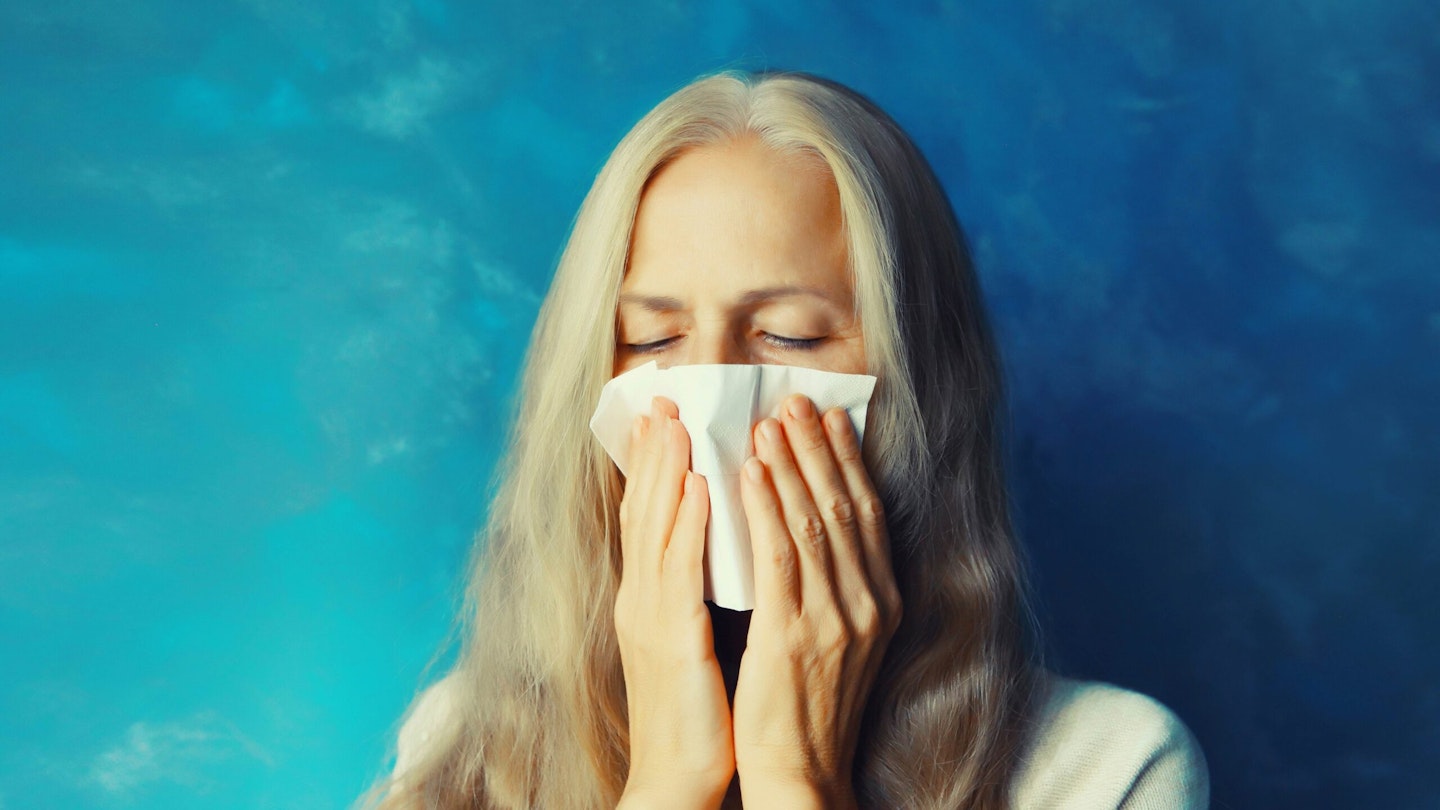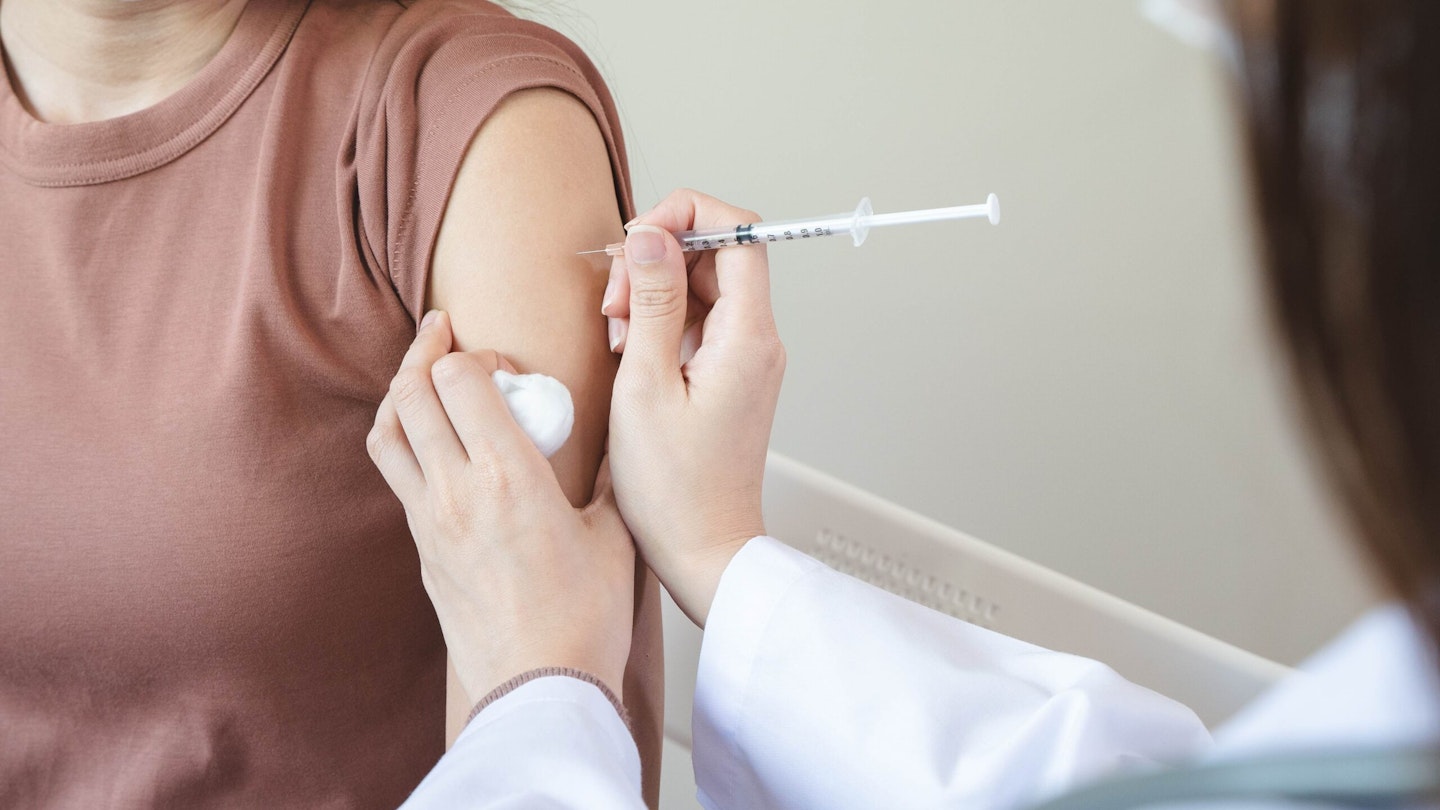The UK has become the first country in the world to launch a nationwide RSV (Respiratory Syncytial Virus) vaccination programme, aimed at easing pressure on the NHS during the colder months. First rolled out on 1 September 2024 in England, the initiative offers a vaccine to pregnant women over 28 weeks to help protect their newborns, a routine jab for everyone over 75, and a one-off campaign for those aged 75 to 79.
These groups have been prioritised following advice from the Joint Committee on Vaccination and Immunisation (JCVI), as they face the highest risk from RSV.

What is RSV?
RSV is a respiratory virus that can cause mild cold symptoms and can be more harmful to infants and older adults with more vulnerable immune systems.
Mild symptoms include a runny nose, coughing, sneezing, a fever, wheezing, and a decrease in appetite, while more severe symptoms include bronchiolitis, pneumonia, and long-term respiratory illness.
This respiratory virus is common over the winter period, typically November to February. While the symptoms are mild for many, RSV accounts for around 30,000 hospitalisations of children under 5 in the UK annually, and for 20 to 30 infant deaths.
RSV can also be severe in older adults, causing pneumonia and flare-ups of existing lung disease and other long-term conditions. It causes around 9,000 hospitalisations in those aged over 75 in the UK each year.
RSV Vaccination in 2025 — What You Need to Know
1. For Older Adults (75–79 and Turning 75 in 2025–26)
The catch‑up programme for adults aged 75 to 79, which began in September 2024, continues into 2025. If you were in this age group on 1 September 2024, or turn 80 before 31 August 2025, you can still receive the vaccine up to the day before your 80th birthday, or until 31 August 2025, whichever comes first.
Those turning 75 between 1 August 2025 and 31 July 2026 are now being invited to get vaccinated. Invitations are sent by the local NHS immunisation teams.
2. For Pregnant Women
The vaccine is available year-round to pregnant individuals from 28 weeks of gestation. This continues to be offered as part of routine antenatal care.
3. Expanded Eligibility (80 +)
In July 2025, the JCVI recommended extending the catch‑up programme to include adults aged 80 and over as well as residents of care homes for older adults. The government accepted this advice.
While this extension has been approved, specific rollout details—such as the exact start date and invitation logistics—haven’t yet been widely published.
4. Community Pharmacies Rollout
From 23 June 2025, selected community pharmacies, particularly in regions such as the Midlands, Leicestershire, West Midlands, Leicestershire, Suffolk, Essex, Lancashire, and Merseyside, began offering the vaccine to eligible individuals (75–79 and pregnant women). Invitation letters started going out from the week commencing 7 July 2025.
The programme has continued to expand, with selected pharmacies in the North West also now offering the RSV vaccine.
How to get the RSV vaccine in the UK
-
If you're aged 75–79 and haven’t yet had the vaccine, contact your GP or local immunisation team—you may still be eligible until 31 August 2025.
-
If you’ll turn 75 between August 2025 and July 2026, keep an eye out for your invitation letter—NHS teams are already starting to send these.
-
Pregnant and 28+ weeks? Talk to your midwife or GP—or you can arrange to get the vaccine at a participating pharmacy.
-
Pharmacy option available? Check if there’s one near you offering free RSV jabs and book online or walk in. nhs.uk

Is more than one dose of RSV vaccine needed?
In older adults, a single dose is expected to give good protection for a few years. A single dose of vaccine will help to boost protection as you reach an age group at highest risk of serious RSV infection.
Pregnant women should have the RSV vaccine in every pregnancy.
What are the side effects of the RSV vaccine?
Kiran Jones, Clinical Pharmacist at Oxford Online Pharmacy, has shared what side effects people may experience from the RSV vaccine, and how to manage them.
“Irritation around the injection site, which will most likely be the upper arm, is common after receiving an RSV vaccine. You may feel mild to moderate pain or tenderness, which should subside within a few days, and also experience swelling or redness.
“Systemic side effects can include fever as the body’s immune system response is activated, fatigue, headaches and muscle pain,” says Kiran.
Some less common side effects can be an allergic reaction that may trigger hives, itching, swelling and, in severe cases, anaphylaxis.
“Fainting can also occur after a vaccination, as over 60 percent of people experience dizziness, vertigo, nausea, or feeling faint post-jab,” explains Kiran.
Be sure to sit in the waiting room for at least 5 minutes after receiving your vaccine.

How to treat the side effects of the RSV vaccine
“To minimise discomfort or feeling unwell after receiving the RSV vaccine, get enough rest and stay hydrated to help your body recover,” says Kiran.
“Drink at least two litres of water and eat a balanced variety of foods, including protein, fruits and vegetables and wholegrains.
“If you feel nauseous after the jab, stick to more bland foods in smaller quantities like toast, plain rice and potatoes.”
You can also take over-the-counter pain relievers like Ibuprofen and Paracetamol to reduce pain, swelling or fever. Applying a cold compress to the injection site can also reduce any swelling.
“Monitor any side effects, as any lasting longer than two to three days should be highlighted to a medical professional, as it could be a sign of an allergic reaction,” says Kiran.
How to protect yourself from the spread of RSV
RSV spreads through coughs and sneezes.
You can help to prevent the spread of the virus by covering your mouth and nose when you cough or sneeze (ideally with a tissue), and wash your hands with warm soapy water frequently to kill the germs.
If you have symptoms that could be RSV you should try and avoid young babies and anyone elderly.
For more information visit Gov.uk
Claire Tapley is a digital editor for Yours.co.uk. She is a journalist with over 16 years' experience writing for women over 50. In her previous role she was deputy editor on Yours magazine for nine years, before moving over to Yours.co.uk. She is extremely passionate about all things health-related, specifically fitness and healthy eating. She has a huge amount of knowledge on all areas that interest women over 50 including health, wellbeing, finance, food, tech, beauty and fashion.
